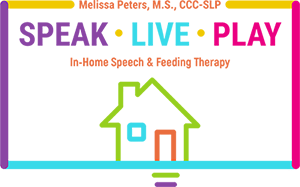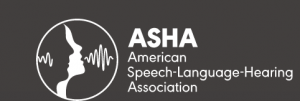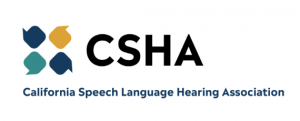Dysarthria Disorder in Children
What is Dysarthria?
Dysarthria is a speech disorder that affects the muscles involved in speaking. It is caused by damage to the nervous system, which controls the movements of the tongue, larynx, jaw, and other parts of the body that produce speech. People with dysarthria have trouble forming and pronouncing words clearly, and their speech may sound slurred, mumbled, or distorted. Dysarthria can make it hard for others to understand what they are saying.
Dysarthria can be either developmental or acquired, depending on when the nervous system damage occurs:
Developmental dysarthria occurs when the nervous system is damaged before or during birth. This can happen due to genetic conditions, infections, or lack of oxygen. Cerebral palsy is one of the most common causes of developmental dysarthria. Children who have developmental dysarthria may have speech problems from an early age.
Acquired dysarthria occurs when the nervous system is damaged later in life. This can occur as a result of injuries, diseases, or disorders that impact the brain or spinal cord. Examples include stroke, brain tumor, Parkinson’s disease, multiple sclerosis, and amyotrophic lateral sclerosis (ALS). Adults who have acquired dysarthria may have speech problems that start suddenly or gradually worsen over time.
People with dysarthria do not have problems with understanding or using language. They know what they want to say and how to say it correctly. However, their speech muscles are weak or uncoordinated, which makes speaking difficult.
If you or your child has dysarthria, you may benefit from speech therapy. A speech therapist, also known as a speech pathologist, is a skilled professional specializing in the diagnosis and treatment of speech disorders. Their expertise lies in helping individuals overcome and improve their communication abilities by employing various therapeutic techniques and strategies. A speech therapist can help you or your child improve your speech clarity, breathing, and oral motor skills. They can also teach you or your child strategies to communicate more effectively, such as speaking slowly, pausing, and checking for understanding. A speech therapist can also provide you or your child with assistive devices or technology that can help you or your child express yourself better.
What is Dysarthria Disorder in Children
If your child has a speech disorder, you may feel frustrated and worried. You may wonder why your child needs to speak or communicate better than other children of the same age. One possible cause of speech delay is muscle weakness, which experts call dysarthria.
Dysarthria can make it hard for children to pronounce some sounds clearly, and you may struggle to understand them. Sometimes, dysarthria can be mistaken for other problems. That is why we will explain what dysarthria is, how to recognize it, and how to help your child.
Dysarthria is a type of speech problem that affects children because of brain development issues. The brain has to coordinate with the muscles that control speech, but sometimes, there are difficulties in this process. Dysarthria often occurs in children with cerebral palsy, who have some level of speech impairment in more than a third of cases. Dysarthria can affect the muscles in different ways, such as their speed, movement, and stability. Any aspect of speech can be affected by dysarthria. Dysarthria can be present from birth or develop before or after the child learns to speak.
Speech Characteristics That Your Child May Have
Children with dysarthria may exhibit the following speech characteristics:
- Slurred, nasal-sounding, or breathy speech
- Voice strain and hoarseness
- Speech that is either very loud or quiet
- Difficulty maintaining a regular rhythm, often accompanied by frequent hesitations
- Gurgly or monotone speech
- Challenges with tongue and lip movements
- Trouble swallowing, which can result in ongoing drooling
It’s important to note that these symptoms may indicate the presence of dysarthria in children.
Depending on their individual needs, a child with dysarthria may be difficult to understand. Dysarthria can affect children to different extents. Some can speak well with support, while others can only easily produce short phrases or single words. Other children may find it very difficult to produce any intelligible speech and will benefit from devices to support their speech.
Language Disorders vs Speech Disorders
Dysarthria is a speech problem, not a language problem. It happens when the muscles and nerves for speaking are not working well. Dysarthria makes it hard for children to say words clearly, even though they know what they want to say and can think normally. The muscles for speaking are not moving well.
Some people think that language and speech problems are the same, but they are not. A language problem is when a child has trouble understanding and using words.
This can affect how a child thinks and learns, but it does not mean that the child is not smart. A child with a language problem may have trouble with speaking, reading, and writing. Any muscle or breathing issues do not cause language problems.
A speech problem is when a child has trouble with making the sounds of words. It is not because of how the child thinks or learns. A speech problem only affects the muscles for speaking and does not affect how smart, how well the child can see or hear or how the child’s nerves work.
What Causes Dysarthria in Children?
Dysarthria is a speech problem that some children have. It can have different causes. Dysarthria can happen because of diseases that affect the brain, such as tumors or sclerosis. It can also happen because of injuries to the head or too much medicine that affects the brain.
Here are some of the causes of dysarthria:
Brain Damage or Injury
If your child hits their head hard, they may have brain damage or injury. This can affect how the brain tells the muscles to speak. The muscles for speaking are in the face, lips, tongue, throat, and chest.
When the brain is damaged or injured, the muscles may become weak, move wrong, or get stiff. This can make it hard to speak clearly.
The symptoms and how bad dysarthria is will depend on where and how much the brain is damaged or injured. Sometimes, dysarthria may be mild and only affect some sounds or words. Other times, it may be very bad and make speech almost impossible.
Muscle and Nerve Problems
Muscle and nerve problems can cause dysarthria by making the muscles and nerves for speaking not work well. For example, a muscle problem like dystrophy can make the muscles of the tongue, lips, and face weak. This can make it hard to move these muscles right to speak clearly.
Also, a nerve problem like Parkinson’s can affect the nerves that tell the mouth and throat muscles what to do. This can lead to speech problems.
In both cases, the brain cannot control the muscles to speak well. This causes dysarthria. The symptoms of dysarthria will depend on where and how bad the muscle or nerve problem is.
Developmental Delays
Developmental delays can cause dysarthria by making the muscles and nerves for speaking not develop well. Normally, children learn to move their lips, tongue, and other mouth muscles to speak clearly. A child with a developmental delay may have trouble moving these muscles right. This causes dysarthria.
For example, a child with a developmental delay may have weak mouth muscles or have trouble planning how to move them. This can make it hard to speak clearly. A child with a delay in speech and language may not practice using their mouth muscles to make sounds and words. This can lead to dysarthria.
How bad and what symptoms dysarthria has will depend on why and how the child has a developmental delay. The child’s skills and needs will also affect dysarthria. Early help and therapy can help children with developmental delays get better at speaking and language, including dysarthria.
To get an accurate diagnosis of dysarthria, we recommend you consult a pediatric neurologist or a specialist in child behavior.
How Dysarthria Affects Your Child
Dysarthria is a speech problem that some children have. It can make it hard for them to control how loud, high, and clear their speech is. This can make their speech sound slurred, slow, or hard to do. They may also need help with saying long words and sounds nasal or hoarse. Dysarthria can make it hard for them to control their saliva, chew, and swallow.
Dysarthria can make it hard for your child to communicate well. Your child may have trouble saying words and sharing their thoughts, which can make them feel frustrated and have problems with others. Your child may also have trouble understanding others, which can make communication harder.
Dysarthria can also affect your child’s health. Your child may have trouble chewing and swallowing, which can make them not eat or drink enough. They may also choke or breathe in food or liquid, which can be dangerous.
Dysarthria can also affect your child’s feelings and self-confidence. Children with dysarthria may feel lonely and not want to talk to others because they feel upset, ashamed, or scared of being made fun of. They may have mental problems like social anxiety if they do not get good speech therapy and support from their family.
But with the right help and support, children with dysarthria can get better at communicating and have a better life.
How to Know if Your Child Has Dysarthria
Dysarthria can be different for each child. However, the American Speech-Language-Hearing Association lists some common signs of dysarthria in children. Your child may have dysarthria if they:
Speak in a way that is hard to understand. Speak very slowly or very fast. Speak very softly. Cannot move their tongue, lips, and jaw well. It sounds like a robot or not smooth. Sound hoarse or breathy or like they have a cold or are talking through their nose.
You should see a doctor right away if your child has trouble using their muscles to speak. A Speech-Language Pathologist can check your child’s speech and language to see if they have dysarthria or something else.
The SLP will check how well your child can move their mouth, lips, tongue, and breath. The SLP will also check how well your child can speak in different ways, like single words, sentences, and conversations. The SLP will also check how well your child can understand and communicate with others.
Understanding and Managing Childhood Dysarthria
Dysarthria is a speech disorder that impacts the muscles involved in speaking, leading to difficulties in verbal communication. Children with dysarthria may have difficulty pronouncing words clearly, controlling their voice volume and pitch, and coordinating their breathing and speech. Dysarthria can have different causes, such as brain injury, cerebral palsy, stroke, or genetic conditions.
Children with dysarthria need the support and cooperation of their families and caregivers to improve their communication skills. Here are some helpful tips for both the child who has dysarthria (the speaker) and the person who listens to them (the listener).
Tips for the speaker:
Start with a simple word or a short phrase before you say longer sentences. Make sure the listener understands what you are saying. You can ask them to repeat or confirm your message. Speak slowly and loudly, and pause often. Avoid long conversations when you are tired, as your speech may become more difficult to understand. If you get frustrated, use gestures or point to things to help you communicate, or take a break and try again later. If you are a younger child, you may need some reminders to use these strategies.
Tips for the listener:
Minimize distractions and noise around you. Please focus on the speaker when they are talking. Look at the speaker’s mouth as they talk. Tell the speaker if you have trouble understanding them. Only repeat the parts of the message that you did not understand so the speaker does not have to say everything again. If you’re still having trouble comprehending, feel free to inquire using questions that can be answered with a simple yes or no. Alternatively, you can kindly request the speaker to write down their message for you.
Find the Best Care for Your Child at Speak Live Play
Speak Live Play is a trusted provider of comprehensive speech and language services for children who experience various communication disorders, including dysarthria. Our team has highly skilled and licensed speech-language pathologists who possess extensive expertise in diagnosing and treating a wide range of communication challenges. Whether your child requires assistance with articulation, language development, or any other speech-related therapy needs, our dedicated professionals are here to provide personalized and effective treatment tailored to their unique requirements. Rest assured, at Speak Live Play, your child’s communication journey is in capable hands.
At Speak Live Play, we understand the unique challenges that children with dysarthria face. Our specialized speech therapy program is tailored to meet your child’s specific needs, providing targeted support for speech clarity, breathing, and oral motor control. Our experienced speech-language pathologists work closely with your child, using a variety of exercises and techniques to strengthen their speech muscles and enhance their communication skills. With our all-encompassing approach, we’re committed to helping your child thrive and conquer the challenges of dysarthria.
Speak Live Play is dedicated to providing comprehensive support and education not only to children but also to parents and caregivers. By offering valuable insights into your child’s condition, we empower you with the knowledge and tools to enhance their communication abilities. Furthermore, our services extend to the provision of cutting-edge assistive technology and devices specifically designed to assist children with severe dysarthria in effectively expressing themselves. We are committed to enabling every child to reach their full potential in the realm of communication.
If you are looking for expert speech therapy for your child with dysarthria, you can contact Speak Live Play. They are a team of experienced and qualified speech therapists who can provide online or in-person sessions for your child. Speak Live Play can help your child overcome their speech challenges and achieve their communication goals.



